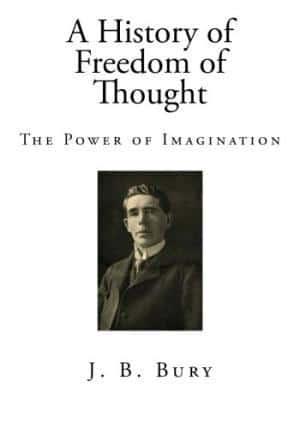Publisher's Synopsis
A History of Freedom of Thought
By J. B. Bury
It is impossible to know with certainty what another person is thinking, making suppression difficult. The concept is developed throughout the Bible, most fully in the writings of Paul of Tarsus (e.g., "For why should my freedom [eleutheria] be judged by another's conscience [suneideseos]?" 1 Corinthians 10:29.).
Although Greek philosophers Plato and Socrates had discussed Freedom of Thought minimally, the edicts of King Ashoka (3rd century BC) have been called the first decree respecting Freedom of Conscience. In European tradition, aside from the decree of religious toleration by Constantine I at Milan in 313, the philosophers Themistius, Michel de Montaigne, Baruch Spinoza, Locke, Voltaire, Alexandre Vinet, and John Stuart Mill have been considered major proponents of the idea of Freedom of Conscience.
Queen Elizabeth I revoked a thought censorship law in the late sixteenth century, because, according to Sir Francis Bacon, she did "not [like] to make windows into men's souls and secret thoughts." During her reign, philosopher, mathematician, astrologer, and astronomer Giordano Bruno took refuge in England from the Italian Inquisition, where he published a number of his books regarding an infinite universe and other topics banned by the Catholic Church. After leaving the safety of England, Bruno was eventually burned as a heretic in Rome for refusing to recant his ideas. For this reason he is considered by some to be a martyr for free thought.











